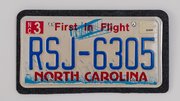Article
How self-serve payment kiosks improve power company’s revenues and efficiencies
Automated payment kiosks have improved the customer experience for an Alabama utility company, in addition to improving cash flow and lowering processing costs. A revenue-sharing arrangement with the kiosk provider has also created a new source of income for the utility.

November 21, 2018 by Elliot Maras — Editor, Kiosk Marketplace & Vending Times
Alabama Power Company became interested in self-serve kiosks last year as a way to help customers pay their bills. Once the company deployed 79 self-serve payment kiosks at 34 of is 89 offices, as described in part one of this two-part series, more customers have been able to pay bills at their convenience, improving customer satisfaction as well as the utility's cash flow.
The kiosks, provided by Chicago-based CityBase, also save Alabama Power money since the cost per payment is less for the kiosk than it would be for manual accounting, said Terri Tucker, the utility company's accounting services manager. Having an employee process a transaction costs the company more than $1, which is significantly higher than the cost of an automated payment, Tucker said. The transaction cost of an individual automated payment will vary based on the volume for a given time period.
The more customers the company can convert to automated payments, the greater the savings, Tucker said. Currently, nearly half of all customers (49 percent) pay via the web; 28.7 percent pay at an office (either at a teller window or a kiosk); and approximately 22 percent mail their payments, she said.
The kiosks are especially helpful in allowing cash-paying customers to automate payment, Tucker said. Approximately 67 percent of kiosk payments are made with cash, with the balance made up of checks. Credit and payment cards are not accepted at either kiosks or teller windows, which is fine with most kiosk users, most of whom do not have credit or debit cards. Tucker said most cash customers are "underbanked."
Customers who want to make a credit or debit payment online can do so through a third party, Tucker said.
No change in employee head count
The kiosks have not impacted the company's head count, Tucker said. There were some staff reductions around the time the kiosks were introduced, she said, but those were not because of the kiosks.
A number of customers did ask if the kiosks would result in layoffs, Tucker said. The company reassured them that employees would not lose their jobs due to the kiosks. "That was not our objective when we put the kiosks in," she said.
A new revenue stream
The kiosks have also provided Alabama Power an additional revenue stream, thanks to their ability to process payments for other companies under a revenue-sharing agreement with CityBase. Two Alabama Power payment kiosks are already processing customer payments for another utility company, Montgomery Water Works. Tucker said other companies have also expressed interest in outsourcing some of their customer payments to Alabama Power.
"We're looking at trying to grow [commercial payment processing] in some of our other offices where other utility companies are looking for something like that," Tucker said. "[Payment processing clients] may not have as many options for their customers other than mailing a payment."
"If we can onboard more revenue share opportunities, that recoup [of the original kiosk investment] will come a lot faster than just basing it on in-house transactions," Tucker said.
The company has chosen not to install kiosks off premises since they don't envision attracting a great deal of additional use, Tucker said. "Our offices are pretty centrally located in most areas," she said. In addition, security would be more difficult at off premise locations.
Now that 24/7 payment is available to Alabama Power customers, Tucker said the company is considering a prepay option as it continues to find more ways to improve convenience for its customers.
About Elliot Maras
Elliot Maras is the editor of Kiosk Marketplace and Vending Times. He brings three decades covering unattended retail and commercial foodservice.
 ChatGPT
ChatGPT Grok
Grok Perplexity
Perplexity Claude
Claude










